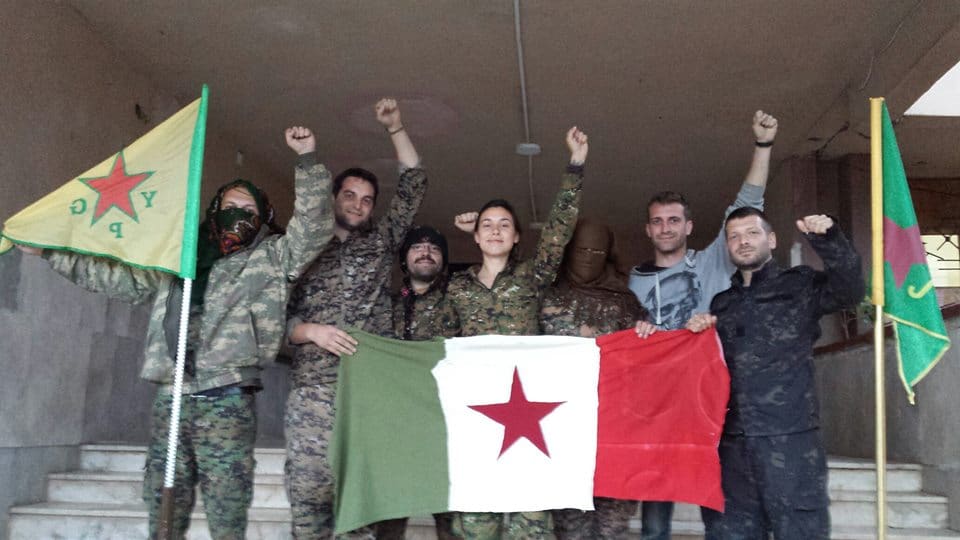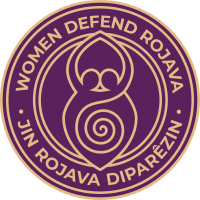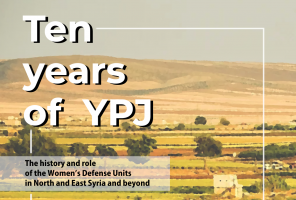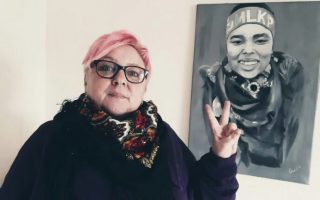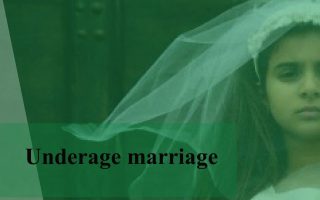Article writed by Arîn Hêlîn
Like so many other internationalists from all over the world, comrades from all over Italy decided to be an active part of the Rojava revolution, traveling to the north of Syria to take part in different works both in the military and social areas.
Just one year after the death of Lorenzo Orsetti, a fellow Florentine internationalist, who fell fighting the Islamic State in Baghuz region in Deir Ez Zor desert in eastern Syria, the Prevention Measures section of the Turin Tribunal has decreed that the former YPJ combatant, Maria Edgarda Marcucci, is “dangerous for society”. It is a great contradiction that Lorenzo Orsetti, alias Tekoşer Piling, was treated as a national hero by media, Italian personalities and a large part of public opinion; while other volunteers and fighters have been subjected to lengthy legal proceedings.
Eddi: When Tekoşer fell in battle, some politicians made some condolence tweets while in private the state bureaucracy hindered by any means the celebration of a public commemoration, insulting all those who wanted to pay homage to a freedom fighter. Moreover, Italy is one of Turkey’s main commercial and political partners and the proud supplier of most of its war helicopters. Italy, like all other countries, never recognized the d#Democratic Confederation of North and East Syria as a political subject. Women’s movements and struggles were silenced, and what was left was the sexist and orientalist image of the YPJ fighters, with no words dedicated to what they were fighting for.
But for the people, the Kurdish struggle was already known to a part of society that remembers the international complot and the period that Serokatî (Abdullah Öcalan) spent in Rome. Many others followed with the Kobane resistance. More and more they became aware of the situation in Middle East, so also the sacrifice of internationalists made many people, even far from understanding what was happening, wonder: why would something that was happening so far away matter so much to someone in another part of the world? Why would they give everything for it? The martyrdom of people like Tekoşer or Helîn Qerecox meant and means a lot to thousands of young people. I joined dozens of conferences and events where people shared how through their stories (the stthey could learn about democratic confederalism, women’s struggle, people’s resistance in Kurdistan, and how all this gave them hope for changes they thought were lost, or never had.
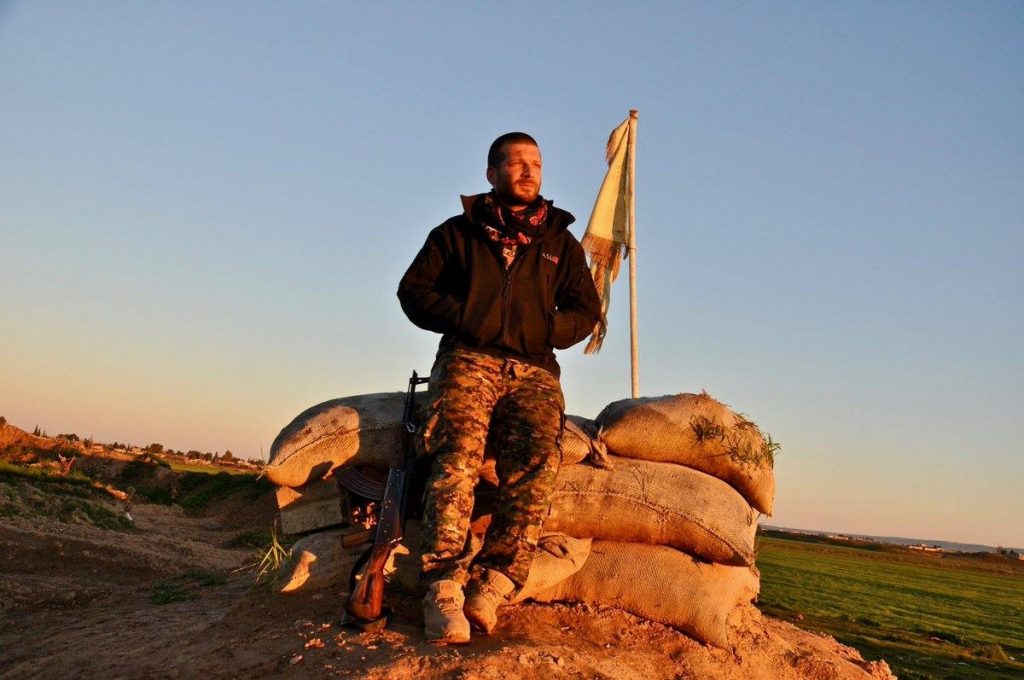
Maria Edgarda Marcucci, known as Eddi, was the only one of a total of five internationalists subject to the extraordinary law of “special vigilance”, which has been classified as “socially dangerous”. This special law is included in the so-called Rocco Code, a source of Italian law directly inherited from Mussolini’s fascism and still in force. This law is not based on accusations of crimes allegedly committed, but analyses the personality of individuals “proposed” (and therefore not “accused”) by the police and makes predictions about their future behavior. In order to prevent the crimes they might commit, the proposed individuals are subjected to severe restrictions of freedom.
Currently Eddi, without having been convicted of any crime, is forbidden to leave her municipality, her passport and driving license have been withdrawn. She must remain at home between 9pm and 7am. She is forbidden to meet more than three people at the same time, therefore also to approach or participate in any public event. She must also carry a red notebook with her at all times, in which any member of the state security forces can write down what she is doing, with whom and where, at any time she is required to to permit this. All these measures must be rigorously complied with for a period of two years, which in reality means being sentenced to an open-air prison.
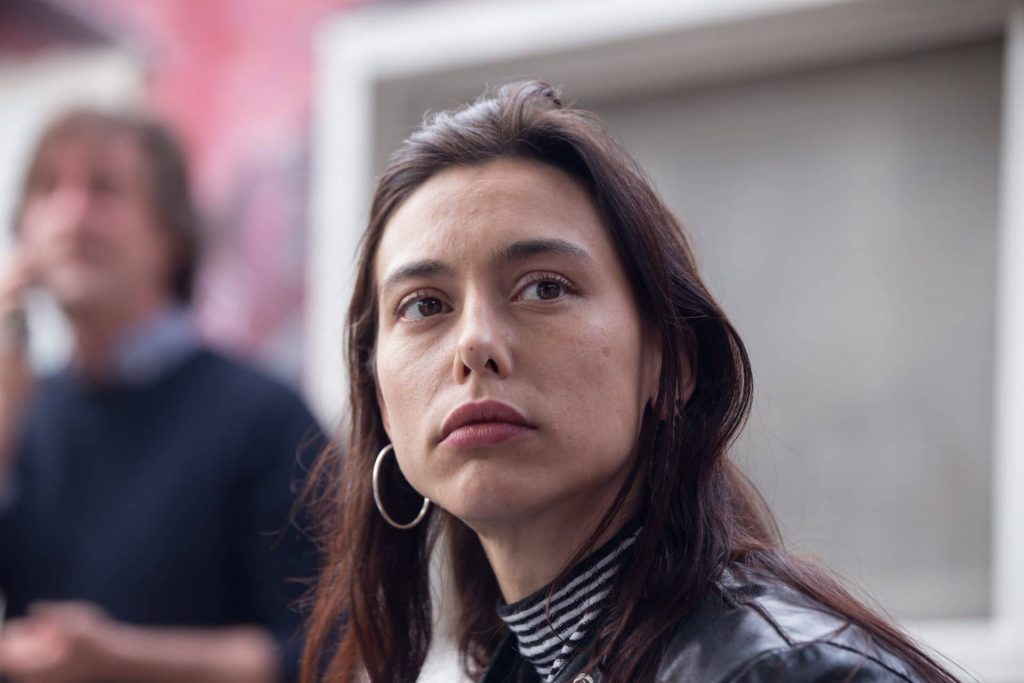
The difference to subject Eddi to the special surveillance law for two years and not the rest of her comrades is, according to judges Giorgio Gianetti, Daniela Colpo and Luciana Dughett, that Eddi never ceased her political activity, not even during the time she was being prosecuted by the Prevention Measures section. In fact they focused most of their arguments on Eddi’s participation, on 25 November 2019, in a protest against Turkey’s invasion in Rojava and the complicity of the Italian state and national arms companies with the genocidal state of Turkey.
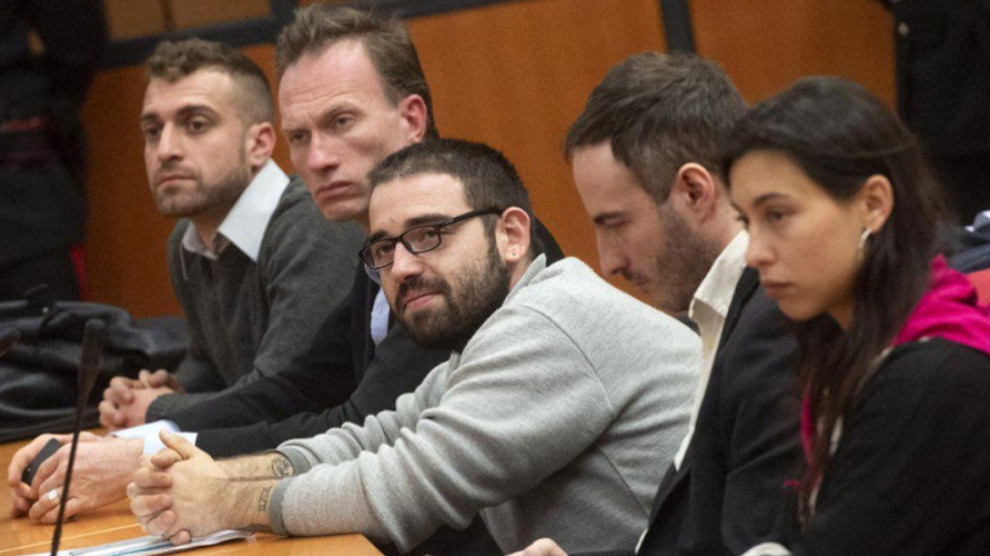
On October 9, 2019, the Turkish army and its jihadist allies began a brutal invasion of Serekaniye and Gire Spi region in northern Syria, displacing around 400,000 people and killing hundreds of civilians and combatants. The Turkish state used aerial bombing, heavy weaponry and chemical weapons against military positions but also civilians, occupying hundreds of kilometers of Syrian territory and taking away Kurdish, Syriac, Assyrian, Arab, Armenian and other families who have become refugees in their own country.
It was in this context that Eddi, along with 12 other people, decided to block the Aerospace and Defense Meeting, a marketing event for aerospace development and arms sales, which had a specific panel on the exchange of military technologies between Italy and Turkey. The 13 activists interrupted the Secretary General’s office by unfurling a banner that read “No trade with murderous Turkey! Erdogan terrorist/ No to aerospace and defense meeting/ No to arms sales/ No to complicated governments/ Riseup4Rojava”. Eddi carried a megaphone denouncing the complicity of the Italian state with the massacre of Kurds in Rojava due to their sale of military technology to Turkey, and also unplugged some monitors that were making propaganda for the event.
Eddi: According to the legal decree time was the main factor. On paper I am the only one who continued the activities by which any of us could be treated as a “socially dangerous” subject. But as these activities seem to be our political commitment it is impossible to understand the criteria by which they chose what or who could be dangerous and what or who could not. The episodes mentioned by the prosecutor are, in most cases, fairly small matters – flyer distribution, conferences, solidarity rallies or events – or mass demonstrations in which they do not notice anything but our presence. None of my comrades have stopped doing any of these things, so if it’s not dangerous when they do it then why does it become dangerous when I’m doing it? As I said, the paper gives its own answer, but it would be a mistake to analyze this case by disassociating it from a larger pattern that becomes clear if we connect a few topics.
Eddi has been struggling for many years as part of the Italian autonomous left, in different social movements such as the campaign “Non Una di Meno” against male violence, but also in protests against TAV (high speed train) in her region of Turin. She is a woman who represents with her actions and words the commitment to the search for a more just, egalitarian and free world, and who decides not to be intimidated by an unjust judicial system that intends to use her as a scapegoat to spread fear among women who decide to rebel against what they know to be wrong.
Eddi: So far I think it is clear that these two views are irreconcilable. They simply cannot be combined; and if you are a woman it is even clearer. I will make an example, just to explain what I mean: in Italy a man kills a woman every 72 hours, nobody could confuse these numbers with isolated cases, however it is the only way in which femicides are framed by institutions. That is the amount of contempt this state has for women. They make us invisible or expose us too much, depending on how they want to use us, but none of the stock female roles includes freedom of choice. They choose me as the only woman for the same reason they show so little respect for any woman in this country, the alliance between economic, racial and sexual exploitation. Fortunately for this country, non-state political subjects are creating an understanding of the world that points out the connections, that dare to imagine and create a different world, from our own perspective.
I will not accept the restrictions in the first place. Of course we are creating a specific campaign against special surveillance, we will call for solidarity actions (now we are asking for banners and photos because of the impossibility to make any demonstrations) but always and especially in this period of quarantine the main work is to use our connections and organization. All of us can use this time of quarantine to spread and deepen the knowledge and discussion about the revolution and its ideology, to spread the texts of Jineolojî and Öcalan, to strengthen and honoring the memory of our martyrs so that we and others follow their life example.
Let us keep the flame of hope and revolution burning wherever we are!
